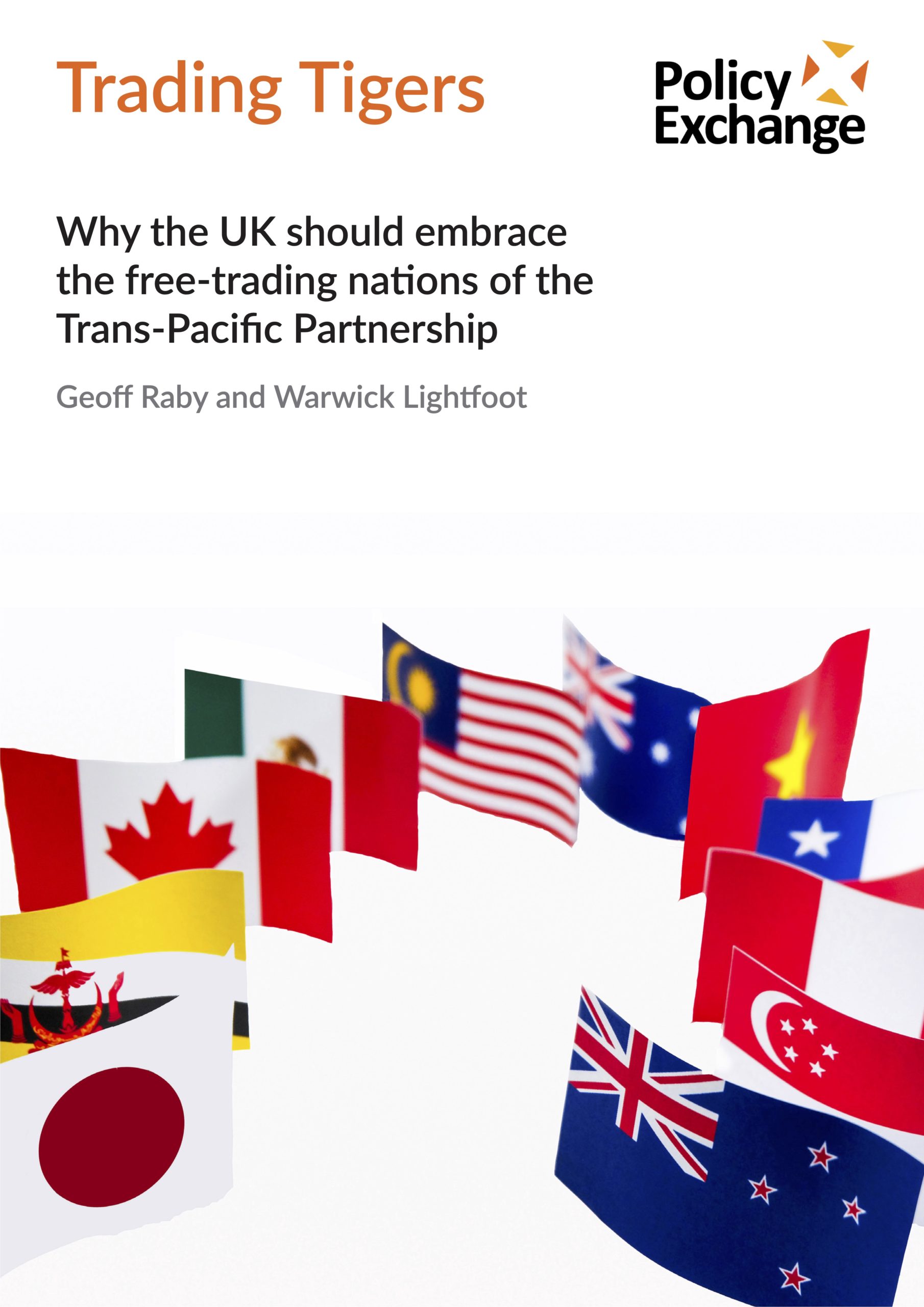
Trading Tigers
Brexit offers the opportunity to join free trade deals with fast growing economies like members of the Comprehensive and Progressive Trans Pacific Partnership (CPTPP) – but only if the UK is free to make commitments on both goods and services, argues a new essay by Policy Exchange’s Head of Trade Policy Geoff Raby and Head of Economics Warwick Lightfoot.
The CPTPP is the highest quality, most comprehensive Free Trade Agreement outside the EU Single Market. It eliminates tariffs and quotas among members, including in agricultural products; involves mutual recognition of a wide range of regulatory measures; and sets rules on cross-border investment between members. Joining the CPTPP has been presented as an easier option than negotiating bilateral deals with each member country; Australian and Japanese representatives have indicated that the UK would be welcome to join. However, joining the CPTPP would require the UK to be free to make deals on both goods and services – and the Brexit White Paper explicitly limits the freedom of the UK to make its own decisions on goods.
Alexander Downer, Policy Exchange’s Chair and a former Australian High Commissioner in London said:
“The United Kingdom, with its modern services-based economy, would be a welcome addition to the CPTPP. Joining the CPTPP would give the UK unfettered access to many markets that represent a large part of the future of the world’s economy.
“One difficulty with this would be if the UK sought to exclude part of its economy from such a deal. The Brexit White Paper shows a desire for the UK to remain closely tied to the EU for manufactured and agricultural goods. In essence it says you want to be free to sell the things you’re good at and protect less competitive areas of your economy.
“As the Policy Exchange paper highlights, the process of ratification has been difficult for some – Japan, for example, experienced heavy resistance from its agriculture sector. Having fought such battles to secure the comprehensive nature of CPTPP, it is unlikely that the UK will be accepted without meeting the same obligations.”
Geoff Raby, a former Australian ambassador to the WTO and also to APEC said:
“Joining the CPTPP could offer the UK an important opportunity to accomplish many of the ambitions of a high quality free trade agreement with several economies at the same time. No bilateral FTA offers the economic benefits the UK would derive from joining the CPTPP.
“By aligning UK policy to EU policy on agriculture and manufactured goods, the White Paper will constrain the opportunities that the UK has to pursue an independent trade policy. The Prime Minister has expressed, however, an interest in pursuing UK participation in the CPTPP for services. Without being able to participate fully in the agricultural and manufactured goods dimension it is most unlikely that the UK would able to join, but if it did would not be able to get the full benefits of the CPTPP.”
Warwick Lightfoot, a former special adviser to three Chancellors, said:
“Leaving the political relationship with the EU should not result in a more closed outlook on the world. Instead the UK should focus on the opportunities in the wider world if we adopt a more free trading approach which exposes our domestic market to greater competition and challenge.”


